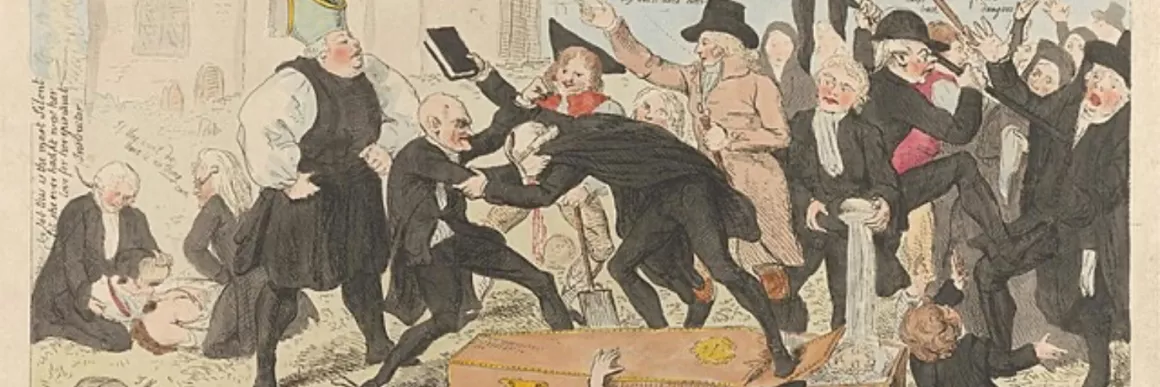Both "irony" and "clerisy" emerge into peculiar discursive prominence during the romantic era. Irony's provenance as a rhetorical term dates back to antiquity, but its usage receives a new birth through the theorizing of Friedrich Schlegel, emerging in his writing as something rather different than the "merely" rhetorical strategy through which one says one thing and means another. For Schlegel (and in his wake) the divide that characterizes its traditional rhetorical definition becomes an allusive point of departure for rethinking the divided nature of discursivity and subjectivity both. "Clerisy" is Coleridge's coinage for a learned class of (more or less) state functionaries responsible for the preservation and dissemination of the national heritage. The role of such a class—its centrality and importance to the nation-state—is developed in various ways, theoretical and practical, throughout the nineteenth century and, in Britain, usually with explicit reference to Coleridge's formulation.
About
Irony and Clerisy © 1999 by Deborah Elise White is licensed under CC BY-NC-ND 4.0

